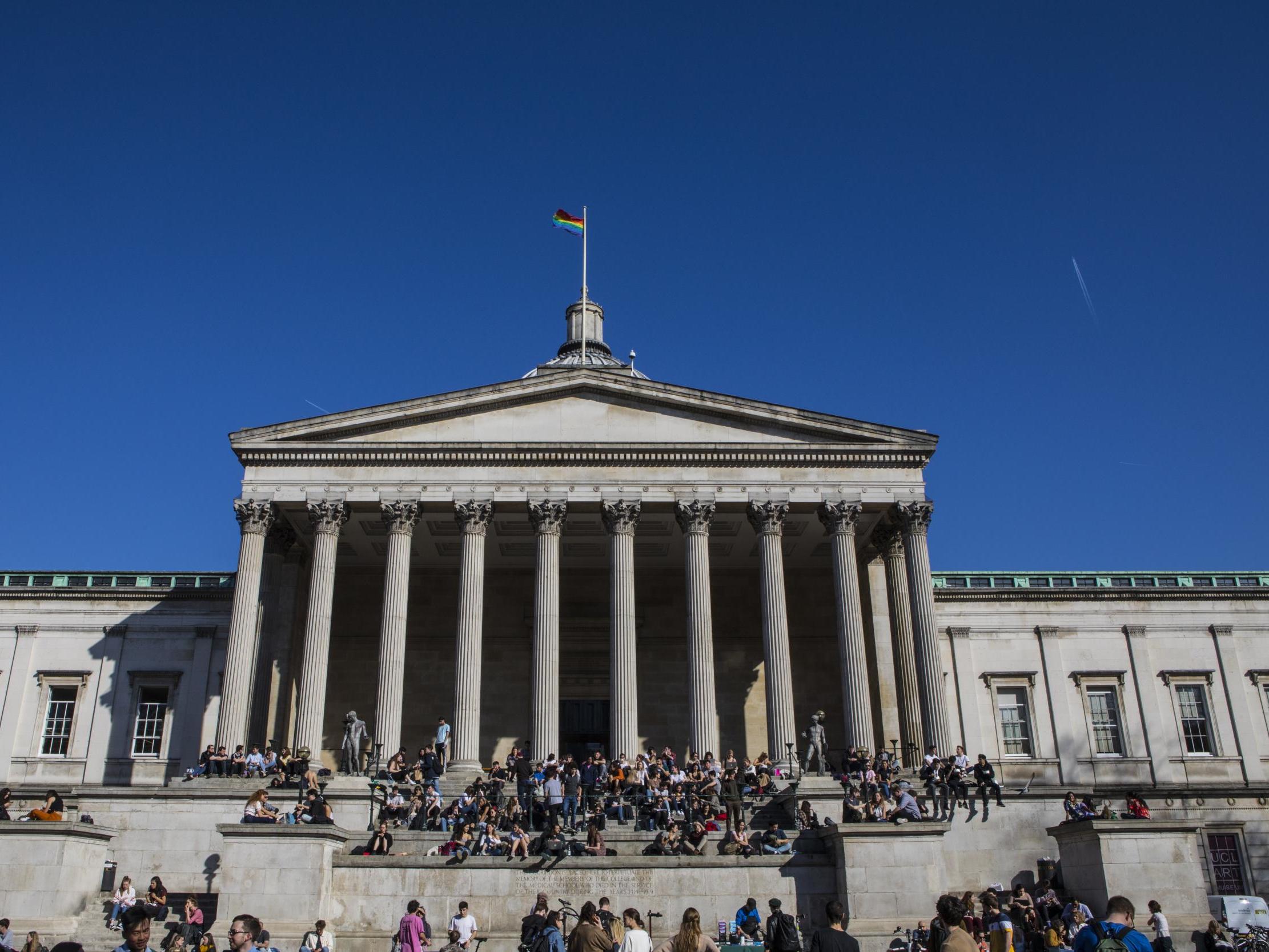UCL bans sexual or romantic relationships between staff and students
'[Staff] should avoid paying undue special attention to a particular student which may be seen as grooming,' states the new policy

Your support helps us to tell the story
From reproductive rights to climate change to Big Tech, The Independent is on the ground when the story is developing. Whether it's investigating the financials of Elon Musk's pro-Trump PAC or producing our latest documentary, 'The A Word', which shines a light on the American women fighting for reproductive rights, we know how important it is to parse out the facts from the messaging.
At such a critical moment in US history, we need reporters on the ground. Your donation allows us to keep sending journalists to speak to both sides of the story.
The Independent is trusted by Americans across the entire political spectrum. And unlike many other quality news outlets, we choose not to lock Americans out of our reporting and analysis with paywalls. We believe quality journalism should be available to everyone, paid for by those who can afford it.
Your support makes all the difference.University College London has become the first Russell Group university to introduce an outright ban on staff and students having romantic or sexual relationships where there would be a “conflict of interest”.
UCL have updated their personal relationships policy to prohibit “close personal and intimate” relationships in cases where the staff member has a direct responsibility for or involvement in the student’s studies or personal welfare.
The rules also apply to PhD students who are employed temporarily as staff members.
And staff who don’t have direct supervision or responsibility for students with which they are romantically involved, also have to declare any relationship “to enable UCL to assess” any potential, or actual, conflict of interest.
If this is not done within a month both parties could face disciplinary action.
The guidance, available publicly on the university’s website, also details steps which staff should take to “help reduce risk of sexual misconduct”.
This includes maintaining “appropriate physical and emotional distance” from students without favour towards any individual.
“Avoid creating special friendships with students as this may be seen as grooming,” it says.
Unacceptable types of behaviour include, but are not limited to; physical touching that could be construed as sexualised, comments or questions of a sexual nature, accepting gifts (“unless it is following final assessment and deemed to be a minor token of thanks”) or inviting an individual student to your private home or room.
Staff have also been told to always use their university email or telephone for communicating with students and “give careful consideration” before giving out their personal phone number.
The policy also prohibits staff from close and intimate relationships with “at risk” adults, which could include people with a disability, whether students or other staff, or students under 18.
Universities in the USA more commonly have such policies, they are in place at Princeton, Harvard and Yale.
Only two other UK universities, Greenwich and Roehampton, have bans on sexual relationships between lecturers and their students, according to research done by The Guardian.
The Independent contacted a number of Russell Group universties about their policies; a spokesperson for Sheffield University said their policy was currently under review.
In 2019 it was reported that UK universities had spent £87m on pay-offs with “gagging orders” to keep allegations of bullying, harassment or sexual misconduct quiet.
The sum was spent on around 4,000 settlements over two years.
Universities UK (UUK), the sector’s representative organisation, said non-disclosure agreements (NDAs) were used for “many purposes”, including protecting valuable research.
However, the body said the contracts should not be used to prevent victims from speaking out and such practices “will not be tolerated”.
Join our commenting forum
Join thought-provoking conversations, follow other Independent readers and see their replies
Comments